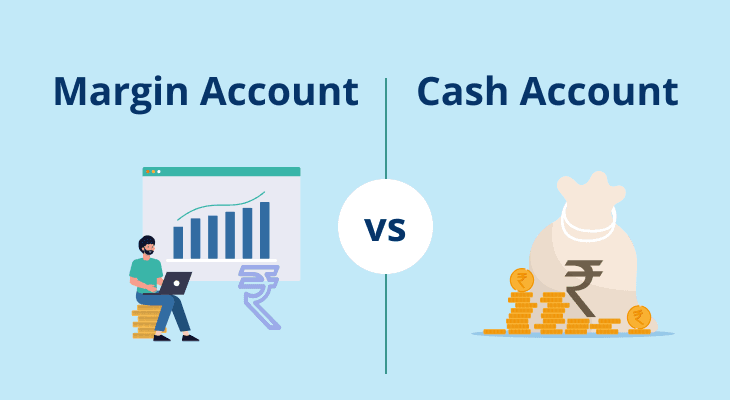
Importance of Demat Account
A Demat Account is a financial tool that allows you to manage your securities. Before the era of Demat, securities were traded and held in physical form that came with a wide range of challenges. The financial world in India underwent a complete transformation with the introduction of Demat accounts in 1996. In this, the Securities and Exchange Board of India (SEBI) played a pivotal role in regulating and standardising the Demat system including its seamless integration into the financial ecosystem.
Let's understand the aims and objectives of Demat Accounts, and discover the importance they hold in the realm of trading and investments.
The Financial World Before Demat Accounts
To truly comprehend the importance of a demat account, let us first understand how trading was done before they were introduced and the challenges physical trading presented.
In the pre-Demat era, investors struggled with the cumbersome process of handling physical share certificates. The entire process, from buying to selling, involved the exchange of paper documents, leading to inefficiencies and delays.
Moreover, physical certificates were susceptible to loss, damage, or even forgery. The absence of a secure and standardised system posed significant risks to investors and market integrity.
Finally, the settlement periods for transactions were quite lengthy, extending to several weeks. This prolonged timeframe not only hindered liquidity but also exposed investors to market uncertainties.
The Emergence of Demat Accounts
In response to these challenges, the concept of Demat accounts emerged as a revolutionary solution, fundamentally altering the dynamics of securities management.
The introduction of Demat accounts brought forth the concept of dematerialisation, a process where physical securities were converted into electronic form. This marked the shift from tangible certificates to digital records, addressing the risks associated with paper-based transactions. They also contribute to environmental sustainability by promoting paperless transactions, aligning with modern eco-friendly practices.
The aims and objectives of Demat accounts included streamlining the trading process, and enabling investors to buy and sell securities with unprecedented efficiency. Real-time settlement became a reality, significantly reducing the time required for transaction processing.
The transition to Demat accounts not only enhanced the security of investors' holdings but also democratised access to the financial markets. Investors could now manage their portfolios with ease, directly influencing the surge in retail participation. It is no wonder, then, that lakhs of new investors have been joining the list of active market participants in the country.
Significance of Demat Trading
Demat accounts work in conjunction with trading accounts, creating a seamless ecosystem for investors. Key aspects include:
Securities held in physical form are converted into electronic form, allowing for easy and secure storage in the Demat account.
A Demat account is intricately linked with the trading account. While the Demat account stores securities, the trading account facilitates the actual buying and selling of these securities.
In a Demat account, various securities such as stocks, bonds, debentures, and mutual fund units can be stored electronically, providing a consolidated view of an investor's portfolio.
The integration of Demat and trading accounts enables real-time updates. When a trade is executed, the corresponding changes in the securities' ownership are reflected instantly in the Demat account.
Read Also: What are the Features of Demat Account
Factors to Evaluate in Choosing a Demat Account Broker
Now that you understand the importance of a Demat account – where can you open one? Thankfully, you can do this quite easily from the comfort of your home or office. Most of the leading brokers offer a quick and convenient demat account opening process that is almost entirely online. Many also offer free demat accounts with minimum brokerage charges. However, you must know that there are several brokers and platforms to choose. Therefore, you must do your research before deciding. Remember, selecting the right Demat account broker is crucial for a seamless and secure experience. Consider the following factors:
Broker Reputation
Assess the broker's reputation for reliability and trustworthiness in handling clients' securities.
Transaction Charges
Evaluate the transaction charges and fees to ensure cost-effectiveness in your trading activities.
User Interface And Experience
Consider the user-friendliness of the trading platform. A well-designed interface enhances the overall trading experience.
Tools
Successful trading requires a lot of research. Ensure your platform provides access to real-time news, market updates, and fundamental and technical tools for analyses.
Customer Support
Evaluate the responsiveness and effectiveness of customer support. Timely assistance is essential for issue resolution.
Wrapping it Up
Demat accounts- are much more than mere electronic storage for securities. They are the backbone of crores of Indian investors. By eliminating the burdens of paper-based systems, they pave the way for a streamlined, secure, and accessible investment landscape. Moreover, they represent a commitment to a greener, more efficient financial future of the nation and its citizens. The seamless integration of Demat and trading accounts exemplifies a synergy that empowers investors.
As you navigate the complexities of the financial world, the significance of choosing the right Demat account broker becomes paramount. Considerations like reputation, transaction charges, user interface, and robust customer support form the pillars of a well-informed choice.
FAQ
What is the primary objective of a Demat account?
The primary goal of a Demat account is to convert physical securities into electronic form, ensuring secure and efficient trading and settlement processes.
How does a Demat account contribute to a paperless environment?
Demat accounts eliminate the need for physical share certificates, promoting eco-friendly practices by facilitating paperless transactions.
Can I store different types of securities in a Demat account?
Yes, a Demat account allows you to electronically store various securities, including stocks, bonds, debentures, and mutual fund units.
What led to the introduction of Demat accounts?
The challenges of handling physical share certificates, including the risk of loss and forgery, and lengthy settlement periods, prompted the introduction of Demat accounts.
How do Demat and trading accounts work together?
While the Demat account stores securities electronically, the trading account facilitates the actual buying and selling of these securities, ensuring a seamless integration.
What factors should I consider when choosing a Demat account broker?
Consider factors such as broker reputation, transaction charges, user interface, and customer support when selecting a Demat account broker.
When were Demat accounts officially introduced in India?
Demat accounts were officially introduced in India in 1996, marking a pivotal moment in the move towards electronic securities management.
How has the Securities and Exchange Board of India (SEBI) influenced Demat account regulation?
SEBI has played a crucial role in regulating and standardising the Demat system, ensuring its seamless integration into the Indian financial ecosystem.


